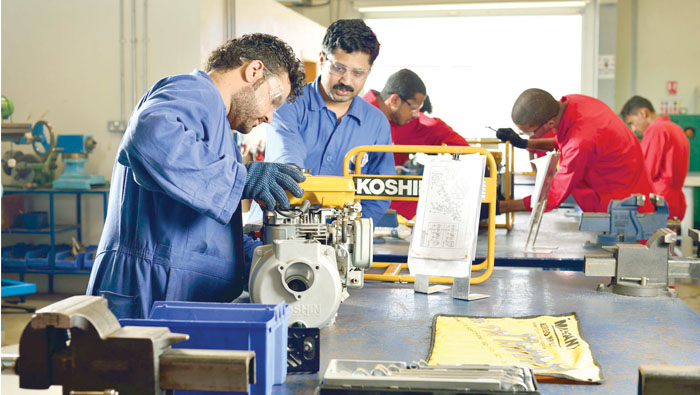
Muscat: Trade unions are here to protect the rights of all workers, said an official from the General Federation for Trade Unions (GFTU), speaking exclusively to the Times of Oman on International Workers’ Day
“There are approximately 1.7 million expats working in the private sector, and 227,000 Omanis. Many of the expats are not aware of the benefits they can get from joining trade unions, such as protection of their rights,” said Abdullah Al Huseini, Head of Media and Public Relations at GFTU.
GFTU was formed in 2006 by Royal Decree No. 74/2006. It aims to represent the Sultanate’s workers before the official authorities and in local, regional and international forums.
During the oil crisis last year, when 48 companies from the oil sector terminated the services of many of their employees, the GFTU worked with the Ministry of Manpower, Ministry of Oil and Gas, and the Oman Society for Petroleum Services to help more than 5,000 workers. Some employees were hired in other companies and some received compensation.
In celebration of International Workers’ Day, the management of L&T Modular Fabrication Yard coordinated with GFTU to grant certain benefits to all workers.
These included special paid leave for all on May 1, world workers’ day, special paid leave for Omanis on October 17, Omani Woman’s Day, an hour for breastfeeding for all women staff for a month immediately after maternity leave, and six-hour shifts for those working in open places during the months of June, July and August.
In 2017, 27 unions were formed, a 10 per cent increase compared to 2016, bringing the total number of unions in the Sultanate to 242. “The reason for the increase could be the growth in the activities of labour unions, in addition to more workers seeing results from settlements, dialogues and realising how we can help them and the company by creating a better working environment,” said Al Huseini.
On the other hand, 53 unions were dissolved in the last decade, a majority in the oil and gas sector.
The sectors that formed the most unions were oil and gas, which established eight unions, followed by trade and commerce with seven unions. For the first time, the service sector in 2017 formed a trade union. The service sector includes retail and teaching. “Oman has come a long way in the field of trade unions,” Al Huseini said. “We represent all workers, Omanis and foreign, but many times when expats come to Oman they do not know the rules, so we want expats to know that there are trade unions in the country and that their rights as workers are protected,” he added.
Muscat has 49.7 per cent of the total unions in Oman, followed by Northern Batinah with 21 per cent, and A’Dakiliyah with 14.5 per cent. The statistics show that the number of trade unions in Muscat is still increasing; that could be because many of the companies’ headquarters are in Muscat.
The reason Northern Batinah is in second place is due to the Sohar Industrial area, and Sohar Industrial Port.
Companies with trade unions in the private sector include Petroleum Development Company (PDO), Oman Air, Omantel, Nizwa, Sohar and Salalah University, Chedi Hotel, The Wave Muscat, and Oman National Transport (Mwasalat). The most prominent labour complaints received by the federation include no pay for extra hours, layoffs and arbitrary dismissal, seizure of health insurance for workers’ families, claim not to associate years of service with age, and non-payment of emergency leave for workers.